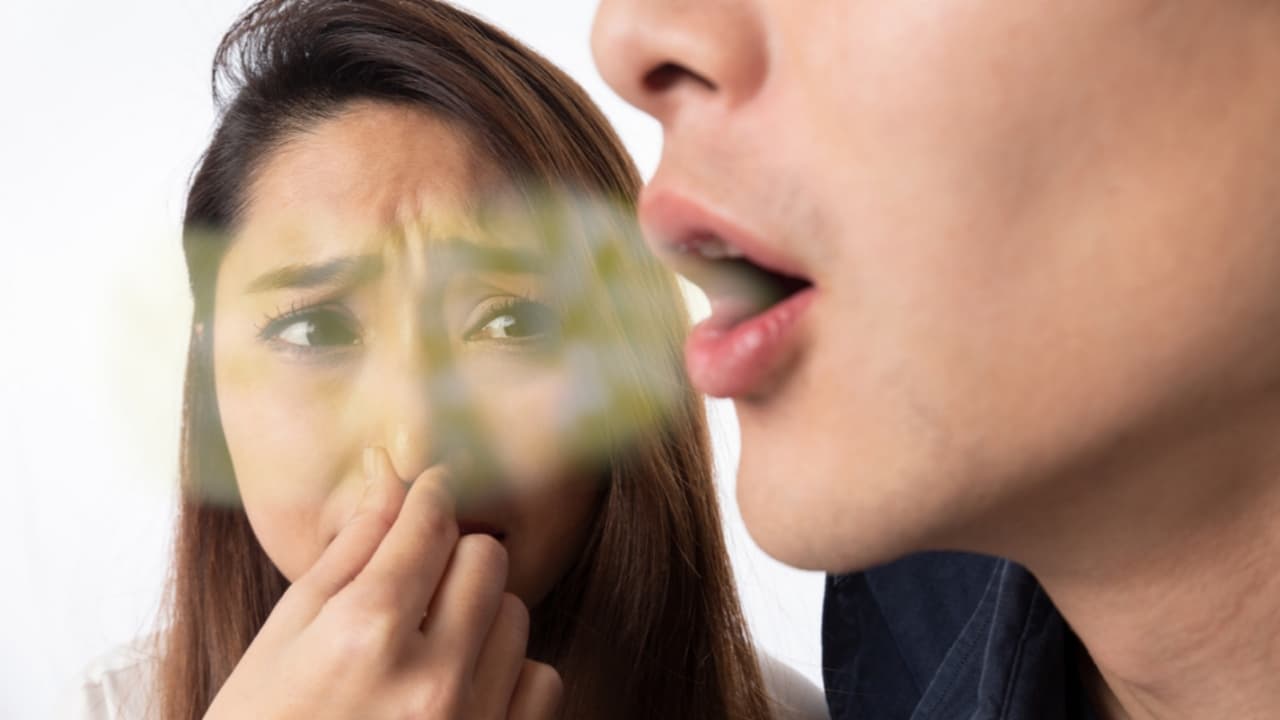Prevention of Bad Breath (Halitosis): Oral malodour – is socially unacceptable. Halitosis is mainly caused by excessive amounts of volatile sulphur compounds being produced by bacteria in the mouth. The number of volatile sulphur compounds in a person’s breath can vary greatly during the day and is influenced by factors such as eating, drinking, oral hygiene, sleeping and the effect these activities have on saliva flow. Studies have shown that up to 50% of adults suffer from objectionable mouth odour in the early morning before breakfast or toothbrushing. The reason for this is that saliva incubates bacteria in the mouth during sleep when saliva flow is reduced. People with periodontal disease exhibit raised odour intensity due to the incubation of saliva and micro-organisms in periodontal pockets. Several systemic diseases and conditions such as diabetes mellitus, chronic renal failure and cirrhosis of the liver can also give rise to particular bad odours in the breath. There is increasing interest in the development of a reliable system that will measure the level of volatile sulphur compounds in one’s breath. While tobacco and certain foods and drinks (e.g., garlic, onions, coffee, alcohol) also influence breath, their effect comes from the lungs rather than from the mouth itself.
Prevention of Bad Breath
The reduction of halitosis is achieved in several ways. The oral hygiene products and plaque control aimed at controlling dental caries and periodontal disease will also help to prevent, control and mask halitosis. Periodontal treatment that results in reduced periodontal pocketing will also minimise halitosis. The majority of studies on volatile sulphur compounds concentrate on the effects which commercially available mouthwashes have on the reduction of halitosis. Reduction in mouth odour is caused by the anti-microbial influence of mouthwash. Some products, however, mask halitosis rather than deal with the cause of the problem. Tooth brushing, eating, chewing gum and tongue cleaning (with a toothbrush or specific tongue-cleaning devices) can be effective in controlling oral halitosis to an acceptable level, though their effect is not as long-lasting as the effect of antimicrobial mouthwashes.
Make sure you also check our other amazing Article on : Tooth Discolouration
